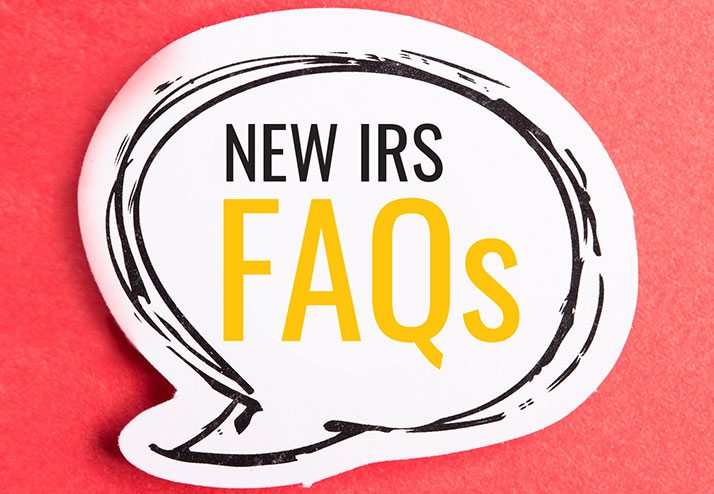
Tax Complexities for Mixed-status Families
America: The bold, the beautiful, the ultimate melting pot, where people from all over the world come in search of opportunity, freedom, and the American dream. In their pursuit of a better life in this great country, immigrants may grow t... Brittany Sabalza, EA

The ERTC Means Big Dollars for Small Businesses, and It Is Not Too Late
As small business owners and individuals alike now pass the two-year mark of when their lives were first upended by COVID-19 shutting down the world and their livelihoods, many fraught mo... Thad Inge and Claire Nevill

Lessons from Another Difficult Tax Season
We are amid our third difficult tax season in a row: 2020 gave us the Families First Coronavirus Response Act and the CARES Act; 2021 gave us the Consolidated Appropriation Act, 2021, and the American Rescue Plan Act; and 2022 continues the aftermath of all these tax laws... Thomas Gorczynski, EA, USTCP

2021 Employee Retention Credit Overview
Employee Retention Credit Guidance for First and Second Quarters of 2021 The Internal Revenue Service (IRS) has now released guidance to address changes made by the Consolidated Appropriations Act, 2021, for... TheTaxBook

Staying Sane in the Chaos of Tax Changes
In the last three years, we have gone through several significant revisions to the tax law: the Tax Cuts and Jobs Act (TCJA), the Families First Coronavirus Response Act (FFCRA), the CARES (Coronavirus Aid, Relief, and Economic Security) Act, the Consolidated Appropriations Act, 2... Thomas Gorczynski, EA, USTCP

Pandemic-Related Payroll Deferrals Become Due This Year
The Coronavirus Aid, Relief, and Economic Security (CARES) allowed all employers, regardless of whether they were impacted by the coronavirus pandemic, to defer the deposit of their 6.2 percent share of Social Security taxes thro...

Your Questions Answered
QUESTION #1: My client, Camille, has been spending significant amounts of time reorganizing her home amid the pandemic. She spent time going through dressers, closets, the attic, the basement, and even the garage. She identified many items that sh... Catherine Martin, JD

CARES Act and Retirement Plan Distributions
As with so many things in 2020, the tax laws changed in regard to distributions from various types of retirement plans. Just as we were getting comfortable with the changes made at the end of 2019 under the Setting Every Community Up for Retirement Enhancement (SECUR... Kathryn M. Morgan, EA, USTCP

Helping Clients in the Face of COVID-19
With hundreds of millions of Americans financially impacted by COVID-19, our role as tax professionals as trusted advisors will be of utmost importance this year as we help them navigate both their tax responsibilities and COVID-19 tax benefits. The articles this month will empowe... Thomas Gorczynski, EA, USTCP

Relief Keeps Opportunity Zones an Attractive Option
The Tax Cuts and Jobs Act’s powerful new investment tool, the opportunity zone program, was intended to enable companies to make smart, potentially profitable, investments in troubled economic areas. The economic downturn brought about by COVID-19 may, at first glance, appear to ... Dustin Stamper and Michael Eickhoff

New IRS FAQs: 2020 Employment Tax Deposits/ Payments Deferral
The Coronavirus Aid, Relief, and Economic Security (CARES) Act provides employers with a deferral mechanism for the employer portion of any Social Security taxes and self-employed individuals with a deferral mechanism for the employer portion of any self-employment taxes... David E. Peritz, CPA

Notice 2020-51: The How-To Guide on Waiving and Rolling Over 2020 RMDs
The IRS released Notice 2020-51 on June 23, 2020, in an effort to answer outstanding questions surrounding the waiver of required minimum distributions (RMDs) from retirement plans for 2020 brought about by the Coronavirus Aid, Relief, and Economic Security (CARES) Act. The ... Jennifer Kiffmeyer, JD

Recent Developments in Employment Tax Controversies
THE INTERNAL REVENUE CODE (IRC OR THE CODE) IS CHOCK-FULL of laws employers must follow. They are required to collect and remit taxes withheld from employee wages, including federal income tax and taxes under the Federal Insurance Contributions Act (FICA), which ... Marcus E. Dyer, CPA

Impact of COVID-19 on Accounting for Income Taxes
The spread of COVID-19 is impacting businesses around the world. As entities consider the effects of COVID-19 on their global operations, careful consideration is needed in understanding the accounting implications of these developments. The many ramifications of the curr... April D. Little, Ciro Buttacavoli, and Adam Lehmann

Keep an Eye on Special Payroll Tax Credits for the Rest of the Year
Congress enacted two laws — the Families First Coronavirus Response Acti (FFCRA) and the Coronavirus Aid, Relief, and Economic Security Actii (CARES Act) — in response to the coronavirus pandemic, which devastated the country late last winter. Both law... Alice Gilman, Esq.












